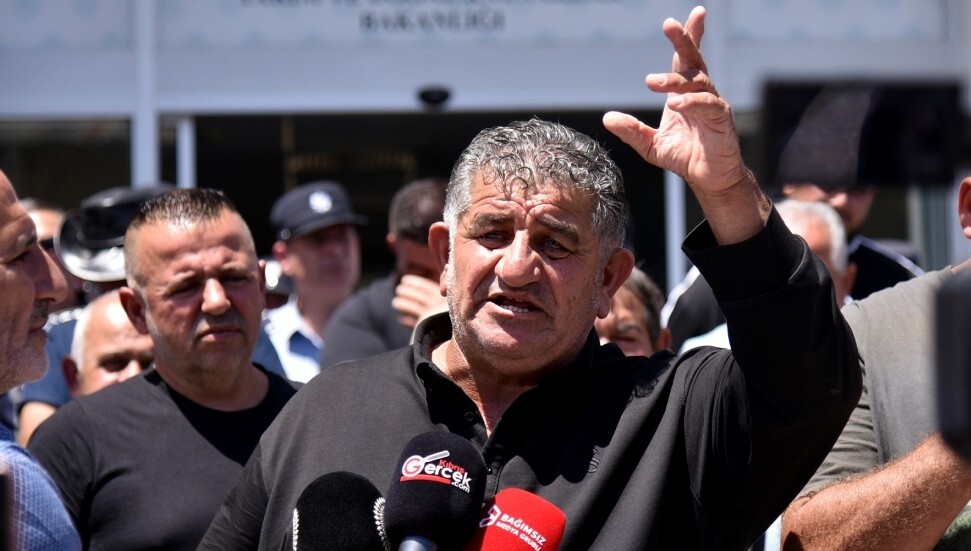The latest meeting between Turkish Cypriot farmers and the north’s ‘government’ over the ongoing dispute regarding imported meat ended without result on Friday, the north’s animal producers’ and breeders’ union chairman Mustafa Naimogullari said on Friday.
Naimogullari had met with ‘prime minister’ Unal Ustel, ‘finance minister’ Ozdemir Berova, ‘agriculture minister’ Huseyin Cavus, and ‘economy minister’ Olgun Amcaoglu, but said afterwards that a solution could not be found.
He added that the ‘ministers’ had told him his demands will be evaluated at the north’s next cabinet meeting, and that with no solution found, protests would continue in front of the ‘agriculture ministry’ building on Monday.
Additionally, he said he did not believe the ‘government’ are acting in good faith, and added that they are “playing for time”.
The meeting came a day after a total of 21 tonnes of imported New Zealand lamb arrived in the north from the Netherlands. The lamb will be kept in a freezer in Mia Milia.
The meat’s import was organised by the north’s Soil products institution (Tuk), a ‘state’-owned enterprise which typically deals with the export of raw products and quality assurance.
Tuk’s chairman of the board Gursel Uzun told newspaper Kibris that the north’s veterinary department had performed tests on the meat to ensure that the imported meat complies with the north’s safety standards before it is distributed to retailers.
“We have all the tests and health certificates according to the European Union’s regulations. However, a final analysis is being carried out by the veterinary department. As soon as the results are available, the meat will be distributed to our people,” he said.
Friday’s meeting cut a different tone to the previous meeting between Naimogullari and Ustel, which took place at the end of last month.
Naimogullari had said at the time that Ustel had “listened to us and said he would do the necessary work”, while Ustel had said t is the ‘government’s’ duty to “support both producers and consumers”.
“We are working to achieve this balance,” he said, adding that his ‘government’s’ aim is to “ensure our people’s comfort by ensuring unity and solidarity.”
Ustel had said the decision had been taken for meat to be imported after there had been a large number of arrests made and fines levied against Turkish Cypriots who attempted smuggle meat to the north from the Republic with the aim of avoiding the high meat prices seen in the north.
He expressed concern that Turkish Cypriots were buying “meat of unknown origin from southern Cyprus”, and that instead, the north would begin importing meat which complies with “EU standards”.
In any case, at present, the Green Line regulation prohibits the movement of animals and animal products from one side of Cyprus to the other.
The decision to import meat had been announced halfway through May in reaction to the high price of meat in the north, but also after attempts to implement price controls had also failed.
The ‘government’ had in April implemented price controls on lamb meat, decreeing that it be sold for no more than 550TL (€15.89 at the time) per kilogram, but butchers then implemented service fees to sidestep the regulation.
The fee typically ranged between 10 and 15 per cent of the retail price of the meat, thus effectively allowing butchers to charge more.






Click here to change your cookie preferences